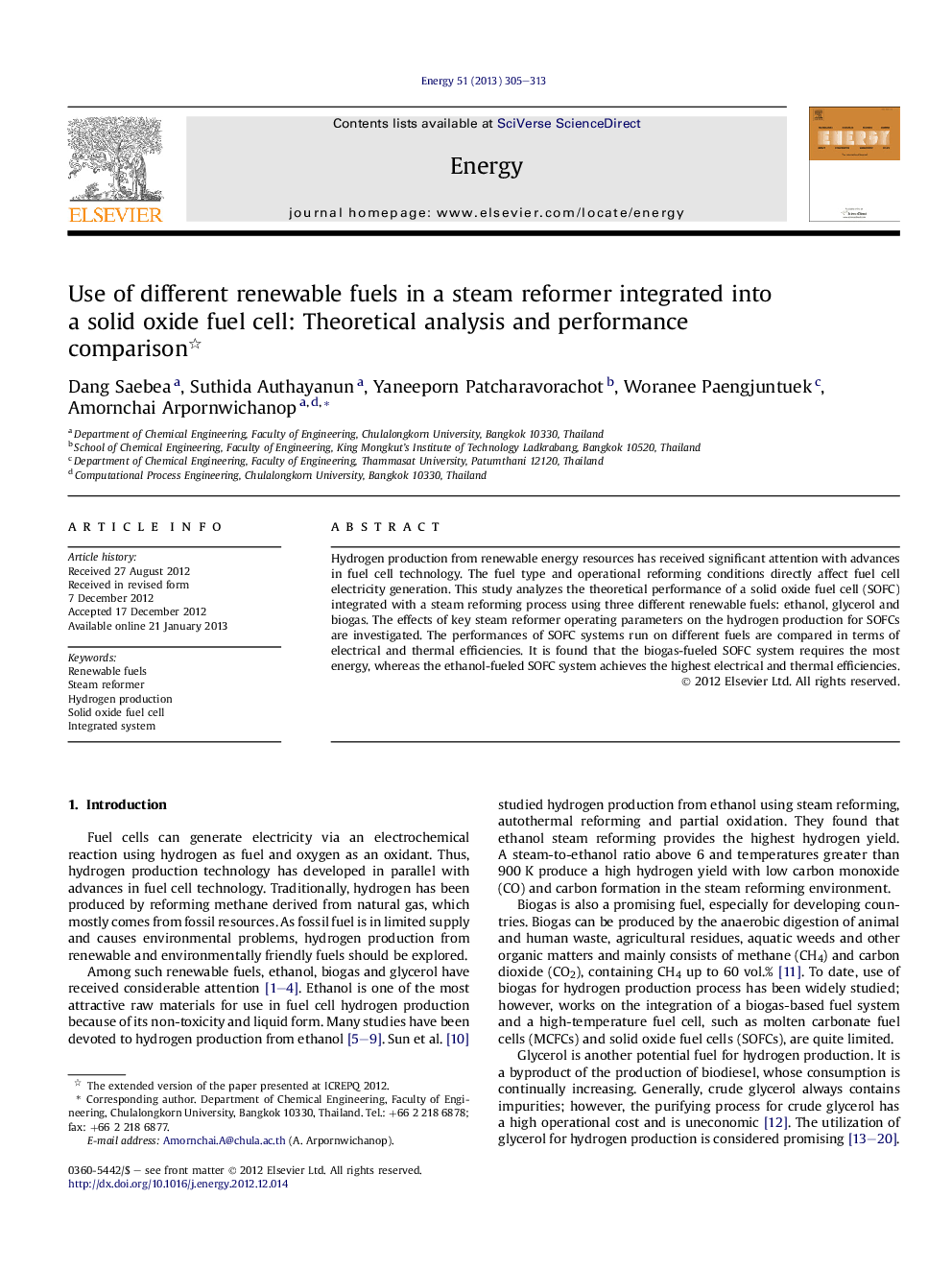| Article ID | Journal | Published Year | Pages | File Type |
|---|---|---|---|---|
| 1733184 | Energy | 2013 | 9 Pages |
Hydrogen production from renewable energy resources has received significant attention with advances in fuel cell technology. The fuel type and operational reforming conditions directly affect fuel cell electricity generation. This study analyzes the theoretical performance of a solid oxide fuel cell (SOFC) integrated with a steam reforming process using three different renewable fuels: ethanol, glycerol and biogas. The effects of key steam reformer operating parameters on the hydrogen production for SOFCs are investigated. The performances of SOFC systems run on different fuels are compared in terms of electrical and thermal efficiencies. It is found that the biogas-fueled SOFC system requires the most energy, whereas the ethanol-fueled SOFC system achieves the highest electrical and thermal efficiencies.
► Performance of a steam reformer and SOFC integrated systems is studied. ► Use of different renewable fuels such as ethanol, glycerol and biogas, for SOFC is considered. ► Steam reforming of ethanol can achieve the highest hydrogen product. ► The biogas-fueled SOFC system requires the highest energy supply. ► The SOFC system fed by ethanol can achieve the highest electrical and thermal efficiencies.
